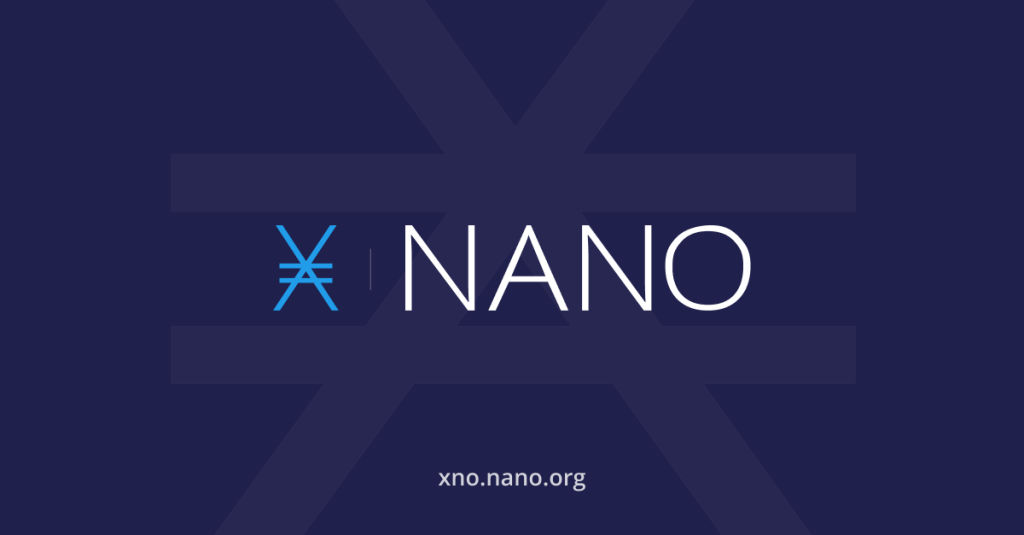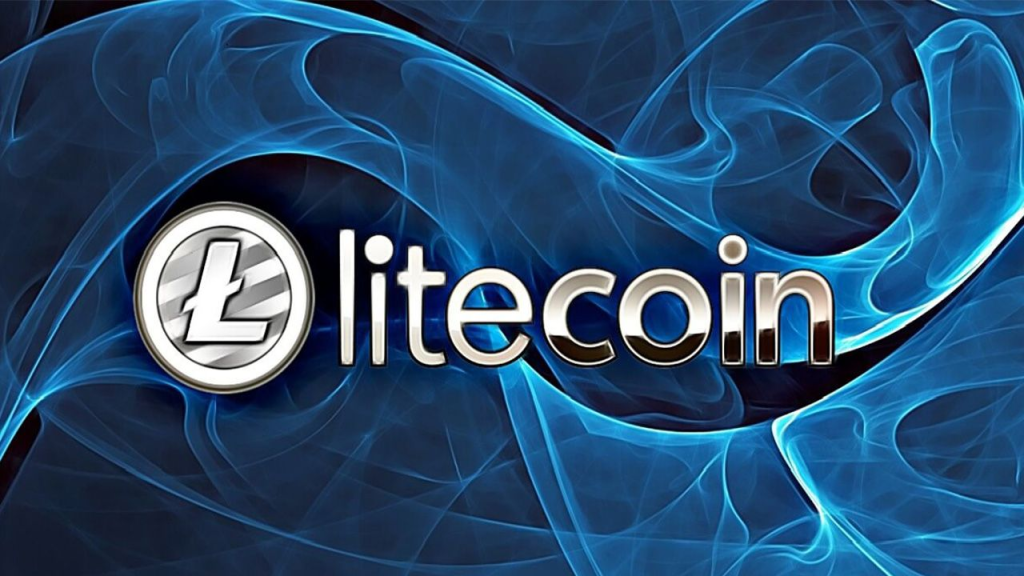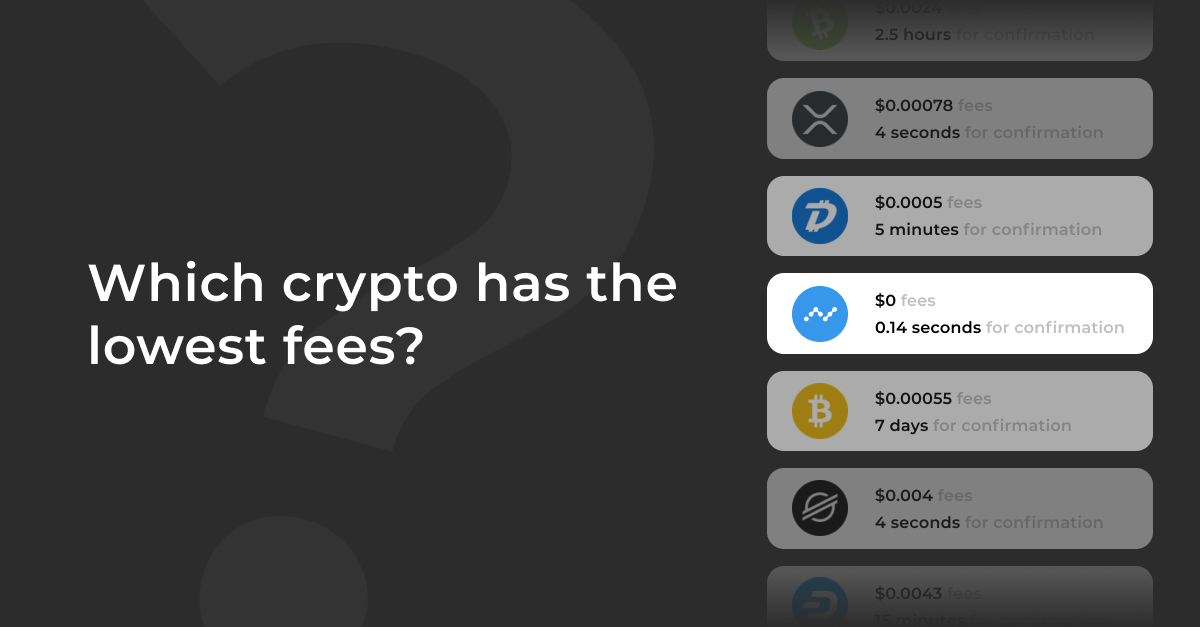There’s widespread agreement that cryptocurrency payments often surpass traditional fiat transactions in terms of speed and cost. But what if we told you that some cryptocurrencies offer transactions with zero fees? In this article, we reveal the top 10 cryptocurrencies known for their astonishingly low transaction fees.
Detailed Reviews of Low-Fee Cryptocurrencies
Nano

Nano follows Bitcoin’s original vision of replacing traditional currencies with a digital currency for everyday use. The project has successfully achieved this goal. Nano is among the few cryptocurrencies that do not charge any fees for transactions. Thanks to its unique Directed Acyclic Graph (DAG) technology, where each user operates on their own blockchain, Nano transactions are not only fee-free but also incredibly fast. This makes Nano ideal for commercial use and micropayments, as users do not need to worry about transaction fees.
Stellar

Stellar is a highly popular asset, widely used for goods, services, and international transfers. It’s no surprise given its lightning-fast transactions and a minimal fee of just 0.00001 XLM. Stellar’s low fees and quick transaction processing make it perfect for micropayments. Launched in 2014 as a hard fork of Ripple, Stellar has gained user trust and is now among the top 50 cryptocurrencies by market capitalization, with its price steadily growing.
Litecoin

Litecoin, one of the oldest cryptocurrencies, was created as a lighter version of Bitcoin. Litecoin transactions are confirmed four times faster and are much cheaper. The average transaction fee on the Litecoin network is usually no more than $0.0070, and transactions are completed within 2 minutes. Its long-standing presence and popularity have earned it high trust among users. Litecoin is also ranked in the top 20 cryptocurrencies by market capitalization.
Dash
Dash, short for “Digital Cash,” was launched in 2014 as a fork of Litecoin. The developers aimed to create a cryptocurrency that could surpass traditional fiat currencies. Transactions on the Dash network are nearly instantaneous, with fees typically not exceeding $0.20. Features like PrivateSend add an additional layer of privacy, while InstantSend allows transactions to be completed in seconds.
Digibyte
DigiByte is a rapidly growing global blockchain focused on the cybersecurity of decentralized applications and digital payments. DigiByte’s goal is to create a fully decentralized cryptocurrency accessible to a broad community. The blockchain operates on five consensus algorithms to ensure high security. Alongside this security, Digibyte offers cost-effective transactions, with fees usually around $0.0005.
Zilliqa
Zilliqa is a scalable blockchain platform for creating decentralized applications, with high transaction processing speed. It employs sharding technology to address scalability issues, increasing bandwidth linearly with network growth. Zilliqa’s transaction fees are just 0.1 ZIL, which is extremely low considering ZIL’s price is under half a cent.
EOS
EOS is a relatively new project with ambitious goals to surpass Ethereum in functionality and popularity. The cryptocurrency is ranked in the top 50 by market cap and serves as an operating system for decentralized applications. EOS transactions are completely free, with system resources allocated for processing rather than charging transaction fees.
Tron
Launched in 2017, Tron has quickly gained traction with its low transaction fees and high throughput. With a market capitalization exceeding 6 million, Tron supports a range of decentralized applications and content-sharing platforms. It competes with Ethereum and is noted for its near-zero fees and rapid transaction speeds.
IOTA
IOTA, launched in 2017, is a groundbreaking project designed for the Internet of Things (IoT). It utilizes Tangle technology, which eliminates transaction fees and supports high scalability. IOTA’s innovative approach has garnered significant attention, placing it among the top 50 cryptocurrencies by market cap.
Bitcoin SV
Bitcoin SV, a hard fork of Bitcoin Cash launched in 2018, focuses on achieving low transaction fees and high scalability. The goal is to fulfill Bitcoin’s original vision as a fast, low-cost payment system. With transaction fees typically under $0.006, Bitcoin SV is well-suited for everyday use as a payment instrument.
Conclusion
Incorporating one of these low-fee cryptocurrencies as a payment method can attract new customers who are frustrated with high bank fees. Offering near-instantaneous and fee-free transactions provides a competitive advantage and meets the needs of users seeking more cost-effective payment solutions.


